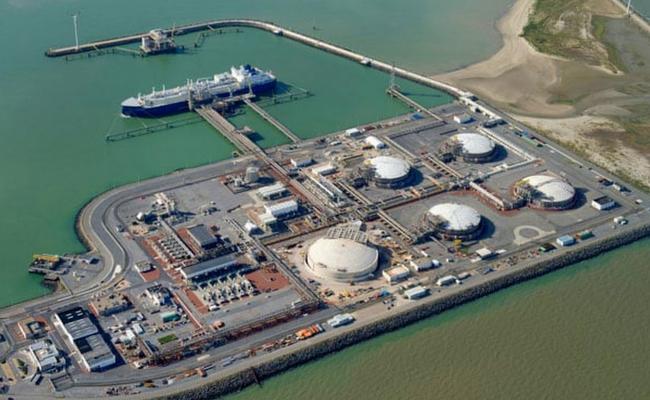Sweden Calls for Ban of Russian LNG Ahead of EU Meeting

The EU continues to inch toward a comprehensive ban of Russian liquefied natural gas. Swedish Foreign Minister Tobias Billstrom confirmed the need to include LNG in the upcoming 14th sanctions package against Russia.
Discussions on a potential import ban of Russian liquefied natural gas (LNG) continue at the EU’s highest level. Ahead of this week’s meeting of the bloc’s foreign ministers in Luxembourg momentum is building to finally begin to curb the flow of Russian LNG to the continent.
The new measures would become part of the planned 14th sanctions measures and would supersede recent legislative action by the EU parliament, which paved the way to allow for national bans but shied away from EU-wide binding rules.
On Monday Swedish Foreign Minister Tobias Billstrom called for the inclusion of LNG in the 14th package.
“We will see to it that we both include an import ban on liquefied natural gas as well as measures to curb the Russian shadow fleet,” Billstrom stated.
“Adopting the 14th sanctions package is one of the most important things,” he said according to Reuters.
Arctic would become substantially longer and costlier
95,000 tonnes of Russian LNG
While Sweden is not a major importer of Russian LNG – Belgium, Spain and France account for around 80 percent of Russian LNG – the country has received several dozen shipments of LNG directly from Russian ports.
Between February 2022 and October 2023 the country imported at least 95,000 tonnes of Russian LNG valued at more than 80 million Euro.
Thus far calls for a ban by select EU and member state officials as well as Ukrainian representatives have resulted in no concrete steps to curb the flow of Russian LNG into the EU. The primary source of Russian LNG is Novatek’s Yamal project in the Arctic.
Anti-circumvention measures
In 2024 the Russian LNG continues to represent around 15 percent of the EU’s LNG imports, behind the number one supplier, the United States. Once regasified the LNG enters the European gas network accounting for 6 percent of the bloc’s total gas consumption.
Minister Billstrom also highlighted the need to include anti-circumvention measures in the upcoming package. Russia continues to rely on a dark fleet to evade sanctions and deliver its crude oil to markets.
Also read (The article continues)
Thus far it has not applied the same methods to the export LNG, though it may elect to do so if broad LNG bans are implemented. The smaller size of the global LNG carrier fleet in comparison to the thousands of oil tankers around the world would however make such a proposition much more challenging, experts say.
Stable supply without Russia LNG
It remains unclear if and to what degree the EU can maintain secure natural gas supply if it were to phase out Russian LNG. Several recent studies by think tanks concluded that the EU’s LNG supply has stabilized to the point that it could stop imports from Russia without much effect on supply security and prices.
However, in a new report published last week an EU regulatory agency warns that any ban on Russian LNG should occur over an extended period.
The EU’s Agency for the Cooperation of Energy Regulators (ACER) warns that LNG will still be needed in the interim, especially due to the imminent termination of a natural gas transit agreement which sends Russian pipeline gas via Ukraine to Europe.
Ukraine will terminate the transit agreement by the end of 2024 thus diminishing pipeline gas supplies for the EU.
Starting with spot Russian LNG imports
"Reductions in Russian LNG imports should be approached with caution, particularly in light of the imminent expiration of the ship-or-pay transit contract for gas pipeline supply from Russia to Europe via Ukraine by the end of 2024,” ACER’s report states.
“[Thus] the reduction of Russian LNG imports should be considered in gradual steps starting with spot Russian LNG imports,” the report further recommends.
Russia’s LNG achilles heel
An import ban of Russian LNG – especially if it included the transshipment of LNG in European ports – would be detrimental to Russia’s Arctic LNG ambitions.
A new report by German advocacy and research group Urgewald published on April 22 highlights how dependent Russia is on the European market, calling it the country’s “achilles heel.”
During the first quarter of 2024 more than 90 percent of Yamal LNG’s production was bound for European ports.
“If nearby European ports were no longer available as import or transit hubs, transport costs for Russian LNG from the Arctic would become substantially longer and costlier,” Sebastian Rötters, energy policy analyst at Urgewald explains
The EU holds significant leverage over Russia with respect to LNG and urges officials to finally take advantage of this lever, the report concludes.



